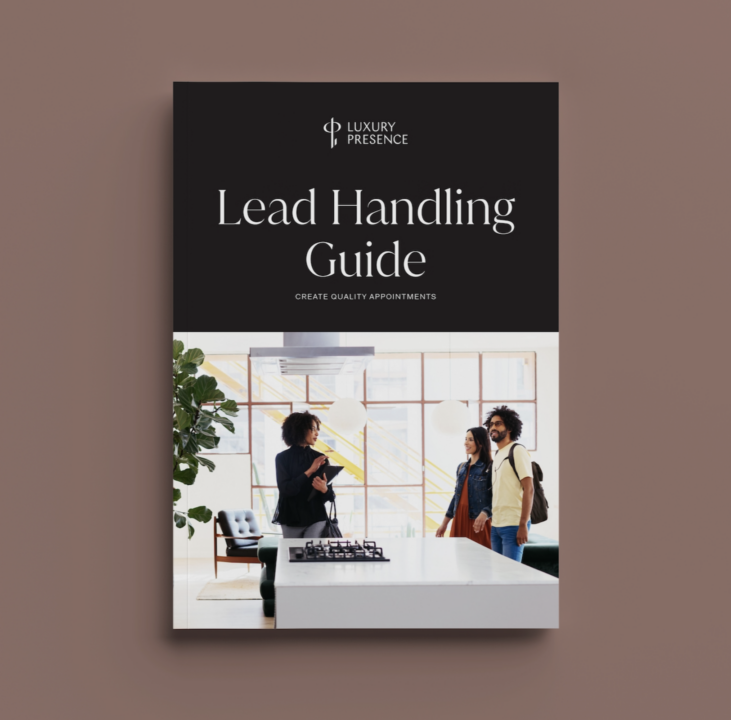As any seasoned real estate professional knows, trust is the cornerstone of our industry. While expertise and dedication are critical, authentic endorsements from satisfied clients are what truly elevate agents’ reputations and distinguish them from the competition.
You might be wondering how to get real estate referrals, which is why you need a systematic strategy that leverages the goodwill you’ve built and ensures a continuous influx of warm leads. By prioritizing referrals, you can harness the power of personal recommendations, solidifying your position as a trusted advisor in the real estate market.
Find It Fast
Real estate referral vs review
In the real estate industry, both reviews and referrals are crucial for building credibility and attracting new clients, but they serve different purposes and are solicited in different ways.
Real estate review
A real estate review is a written testimonial or feedback provided by a past client about their experience working with a real estate agent. Reviews typically appear on platforms like Zillow, Realtor.com, Google, Yelp, or Facebook. They often include details about the client’s satisfaction with the agent’s services, their professionalism, and the overall experience during the transaction.
Purpose
- Credibility: Reviews help build trust with prospects by showcasing positive experiences from past clients.
- Visibility: They improve the agent’s online presence and search engine rankings, making it easier for new clients to find them.
- Feedback: Reviews provide valuable feedback that can help agents improve their services.
Reviews are often requested after a successful transaction, typically via follow-up emails or direct requests. Agents provide links to review platforms and sometimes a brief set of instructions on how to navigate the platform and submit their reviews. Here’s an example of an email you could send:
Subject: Request for Your Valuable Feedback
Dear {client’s name},
I hope this message finds you well. It was truly a pleasure assisting you with your real estate needs, and I sincerely appreciate the trust you placed in me.
If you would be so kind, I would greatly appreciate it if you could share your experience by leaving a review on Google. Your feedback is invaluable and helps me continue to provide the best possible service to clients like yourself.
To leave a review, simply click on this link to access my business page on Google, click on the reviews section, and select “Write a review.”
Thank you very much for your time and consideration.
Warm regards,
{your name}
{your contact information}
Real estate referrals
A real estate referral is a recommendation from a past client or contact to a new potential client who is looking to buy or sell property. Referrals are usually direct and personal, often coming through word-of-mouth or via personal introductions.
Referrals can also mean professional recommendations, from one agent to another. Learn more about professional referrals and the fees involved in our complete guide. For the purposes of this article, we’ll focus on personal referrals.
Purpose
- Lead generation: Referrals generate new business opportunities by connecting agents with potential clients who have already been vetted through a trusted source.
- Transfer of trust: A referral carries inherent trust because it comes from someone the new prospect already knows, making them more likely to engage with the agent.
- Relationship reinforcement: Referrals strengthen relationships with existing clients by acknowledging their satisfaction and trust in the agent’s services.
Agents often request personal referrals through direct communication, such as during a final follow-up after a transaction, through personal conversations, or via email. Agents may also use structured referral programs or incentives to encourage past clients to refer others.
How referrals differ from reviews
While reviews focus on publicly showcasing client satisfaction and improving online visibility, referrals are about leveraging personal recommendations to generate new business opportunities. Both are integral to a successful real estate strategy and we have three tips to make sure you’re leveraging your success with past clients.
There may be a lag in timing between the referral request and its receipt. While reviews should be submitted right away, past clients might not know someone in need of real estate services for months or even years after closing.
Learning how to get real estate referrals requires a strategic approach that builds trust and keeps you top of mind. Below, we’ll explore three key tips to help you consistently earn referrals and expand your network.
1. Get the timing right
In the realm of luxury real estate, the timing of your referral request can significantly impact its effectiveness. Many agents fall into the trap of asking for referrals either too soon or too late, which can diminish the likelihood of receiving a response.
For instance, if you reach out to a client for a referral just two days after closing, chances are you won’t hear back from them. Despite their appreciation of your expertise, they might lack the time and mental bandwidth to think about making a referral immediately after closing.
Conversely, waiting too long — such as six months post-closing — can also be counterproductive. This cadence can be effective if you have maintained regular contact, but it should not be your first communication since the closing. A delayed request might not seem sincere and could even give the impression that your business is in trouble.
To maximize the chances of a positive response, it is essential to find a balance. Ideally, check in with your clients a few weeks after closing to see how they are settling in and if they need anything. Gently segue into requesting a referral when it feels right, which may mean another touch point after that. This approach ensures your request is timely and considerate, and it stands a better chance of being well-received.
2. Check in and help out
Maintaining consistent communication with past clients is essential for sustaining a robust referral network in real estate. Once you’ve successfully worked with clients, they become a lasting part of your professional network. Developing a schedule to follow up with each past client periodically ensures that your relationship remains active and engaged.
For past clients who stay in the area, incorporating them into your pop-by schedule can be particularly effective. Small gestures, such as dropping off gifts or sending thoughtful mailers, help keep you top of mind. Regardless of their location, regularly calling past clients further solidifies your presence in their lives. By maintaining a consistent communication cadence, hearing from you will never feel unexpected or intrusive.
Providing consistent value through your communication channels is also a pivotal component of your referral strategy. Your email outreach and newsletters should cater not only to prospective or current clients but also to your past clients. Regularly sharing market updates, local insights, and expert commentary on the latest real estate trends ensures that past clients continue to see you as a knowledgeable and trusted resource, reinforcing their confidence in recommending your services to others.
By regularly checking in and positioning yourself as a helpful and proactive presence in your clients’ lives, you pave the way for future real estate conversations and create opportunities to casually request referrals. When the majority of your interactions are positive and focused on making their lives easier, clients will remember and appreciate your support. This approach ensures that your requests for referrals are seen in the context of a mutually beneficial relationship, making clients more likely to enthusiastically endorse your services.
3. Make the ask
Learning how to get real estate referrals requires directness. In this section, we’ll explore three key tips to help you consistently earn referrals and expand your network.
While asking for referrals may feel uncomfortable initially, it becomes more natural with practice and the establishment of a consistent system. The more you ask, the more automatic and straightforward the process will become. Each request, when executed thoughtfully, builds a foundation for future referrals, amplifying the impact of the hard work you’ve invested in each client. This proactive approach ensures that you maintain a steady influx of warm leads, helping to sustain and grow your business over time.
Incorporating a subtle referral request into your communications can be effective. Depending on your communication style and relationship with past clients, a simple line at the end of your email — such as “If you know anyone looking to move, please send them my way!” — can serve as a gentle reminder. This unobtrusive approach can jog their memory and lead to new referrals, helping to keep your lead pipeline active and growing.
Asking for referrals directly is also a powerful strategy that leverages the positive experiences of your past clients. It creates a ripple effect, where satisfied clients are more likely to recommend your services to others, thus expanding your network and enhancing your reputation. By making the ask an integral part of your referral strategy, you position yourself for continued success and long-term client relationships.
Here’s a sample email to you can use, with a polite request and the information needed to make it easy for your client:
Subject: A Quick Request
Dear {client’s name},
I hope you’re doing well and enjoying your new home! It was a true pleasure working with you, and I’m grateful for the trust you placed in me during your real estate journey.
If you happen to know of any friends or family who may need assistance with buying or selling a home, I would be honored if you would consider referring them to me. Your recommendation would mean a great deal to me.
Thank you again for the opportunity to work together.
Warmest regards,
{your name}
{your contact information}
Real estate referrals + Luxury Presence
Learning how to get referrals is critical for real estate agents who want to build a sustainable business. Nothing will make new contacts trust you more quickly or deeply than a direct referral from someone they know. Make sure you take the next step to nurture your leads effectively and capitalize on this goodwill.
Develop your lead nurturing strategy
Turn leads into clients with our free scripts, follow-up schedules, and communication tips.





